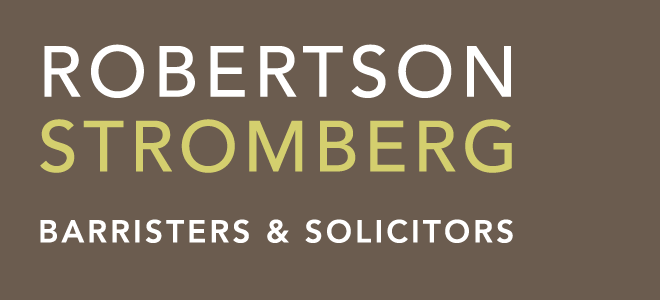The recent Saskatchewan Court of Appeal decision in Klaptchuk v Johnson is a reminder of the principle of devastavit, which forbids an executor from distributing estate assets in disregard of a creditor’s outstanding claim against the estate.
That said, Klaptchuk also reminds us that an executor who is sued in devastavit, is entitled to obtain a ruling as to whether they should be relieved from liability (under s. 45 of the Trustee Act), if they erred but had nevertheless acted honestly. Moreover, Klaptchuk also reminds us that there must be clear evidence of what value existed in the estate, before a court should summarily determine (on affidavit evidence) that a devastavit has in fact occurred.
Factual background:
Klaptchuk arose out of an appeal brought by Sylvia Klaptchuk (“Ms. Klaptchuk”) and the Estate of Peter Klaptchuk (“Estate”) against the decision of a judge of (what was then) the Court of Queen’s Bench. The Chambers Decision had granted summary judgment in favour of certain judgment creditors (the “Judgment Creditors”), and had held that Ms. Klaptchuk was personally liable to such creditors for an unsatisfied judgment they had previously obtained against the Estate.
Some of the material facts included the below:
- Peter Klaptchuk was the sole director, officer, and shareholder of two corporations: Ozonator Industries Ltd. (“Ozonator”) and Peter’s Sewer Service Ltd. (“PSS”);
- On March 9, 2017, the Judgment Creditors obtained judgment in a civil action against Mr. Klaptchuk and Ozonator, in the amount of $160,000 (Johnson v Klaptchuk(9 March 2017) Regina, QBG 1001 of 2014 (Sask QB) (“Judgment”);
- Eight days later, on March 17, 2017, Mr. Klaptchuk unexpectedly passed away.
- Shortly after Mr. Klaptchuk’s death, on March 27, 2017, counsel for the Judgment Creditors sent a letter to Mr. Klaptchuk’s solicitor, Merrilee Rasmussen, K.C., notifying her of the Judgment and advising that they would hold off on any enforcement proceedings for a reasonable period of time, to allow Mr. Klaptchuk’s family to grieve his passing;
- The Judgment Creditors’ counsel also requested that Ms. Rasmussen bring the Judgment to the attention of the representative of the Estate;
- By April 27, 2017, Ms. Rasmussen had replied to the Judgment Creditors’ counsel, saying that Ms. Klaptchuk was the executrix of the Estate, and that she was in the process of settling the Estate’s assets and debts and developing a plan to retire the Judgment. However, the Judgment was never paid;
- On August 24, 2017, a notice of change of shareholders for Ozonator was filed with the Director of Corporations. It named Ms. Klaptchuk as the sole shareholder for that corporation. Ms. Klaptchuk would later take the position that this transfer of shares had been made without her knowledge or authorization. Ozonator subsequently became inactive and was ultimately struck from the Corporate Registry;
- Shortly after the Ozonator share transfer had taken place, Ms. Klaptchuk engaged new counsel, David MacKay, and arranged through him to transfer all of the shares in PSS to herself. The requisite notice, naming Ms. Klaptchuk as the sole shareholder for PSS, was filed with the Director of Corporations on October 3, 2017;
- Although Mr. Klaptchuk’s will named Ms. Klaptchuk as executrix, Ms. Klaptchuk had never applied for a grant of probate or letters of administration. Nor had she renounced the appointment or given any explicit indication that she has refused to accept it. In addition to the transfers of shares mentioned above, Ms. Klaptchuk had taken other steps to administer the Estate, including paying Mr. Klaptchuk’s funeral expenses and his tax arrears, and by paying certain debts owed by PSS out of her own funds. She had also continued to operate PSS as a business;
- On July 24, 2019, the Judgment Creditors commenced a civil action against Ms. Klaptchuk by filing a statement of claim. In it, the Judgment Creditors claimed the below, among other things:
- That, even though Ms. Klaptchuk had not formally assumed the role of executrix, she had intermeddled in the estate property. Namely, she had taken it on herself to possess and administer estate property even though she had not been appointed as executor or administrator, and she had transferred Estate property to herself;
- That Ms. Klaptchuk was liable for devastavit because she had transferred Estate property, namely, shares of the capital stock in Ozonator and PSS, and shareholder loans owned by Mr. Klaptchuk, to herself without first satisfying the Judgment.
- That these transfers were fraudulent conveyances, as they had been transferred knowing that such actions would delay, defeat or hinder their enforcement efforts.
- On August 12, 2021, the Judgment Creditors filed an application in the Court of Queen’s Bench, seeking summary judgment against Klaptchuk and an order directing her to provide a full accounting for the Estate, and tracing any assets she had removed from it. This application led to the hearing that resulted in the Chambers Decision, which found her personally liable to the Judgment Creditors in the amount of $160,000.
Chambers Decision:
- The Chambers Judge found that, despite the fact that Klaptchuk said that she never accepted the appointment as executrix, her conduct amounted to an acceptance of the role of executrix. The Chambers Judge found that she had exercised significant authority over the Estate assets and had paid Estate debts.
- The Chambers Judge then found that even though Ms. Klaptchuk was aware of the unsatisfied judgment against the Estate, she distributed assets — including her late husband’s shares in two businesses — to herself, before paying the Estate’s lawful debts.
- The Chambers judge concluded that Ms. Klaptchuk’s conduct constituted a devastavit. A devastavit is committed where an executor or administrator wastes the estate’s assets by mismanaging, misapplying, or neglecting them, contrary to the duty imposed on them as a personal representative of the estate. The types of conduct that can give rise to personal liability on the basis of devastavit include, among other things, paying legacies to beneficiaries before paying the estate’s lawful debts, where the result is to leave insufficient funds to satisfy the claims of creditors.
- The Chambers judge also found that Ms. Klaptchuk had not fully and properly administered the Estate and, for that reason, was not entitled to rely on the common law defence of plene administravit, which is available when there are insufficient assets to satisfy a claim by a creditor against an estate.
- The Chambers Judge found that Ms. Klaptchuk was aware of the existence of the Judgment and, thus, she had “distributed Estate assets to herself in disregard of the Judgment” and that such conduct “amounts to devastavit which renders her personally liable for the Judgment”.
- With the above conclusion made, the Chambers judge determined that it was unnecessary to consider the Judgment Creditors’ alternative claim of fraudulent conveyance.
- Accordingly, the Chambers Judge found that Ms. Klaptchuk was found to be personally liable for the entire amount of the unsatisfied judgment, being $160,000.
Issues on Appeal:
On appeal, Ms. Klaptchuk contended that the Chambers judge erred in several ways, including (without limitation):
- By granting summary judgment in the face of disputed factual issues; and
- By failing to consider s. 45 of The Trustee Act, 2009, SS 2009, c T-23.01 (“Trustee Act”), which says that if a trustee is liable for a breach of trust, by reason of their act or omission, a court may still relieve them from liability if the court finds that they acted reasonably and ought to be excused for the breach.
Determinations of the Court of Appeal:
The Court of Appeal reversed the Chambers Decision and determined that the Chambers Judge had erred in a number of ways.
Failure to consider whether it would be fair to relieve Ms. Klaptchuk of personal liability:
The Court of Appeal held that the Chambers Judge should have (but did not) consider whether it would be fair to relieve Ms. Klaptchuk of personal liability under s. 45 of the Trustee Act.
S. 45 reads below:
45 If a trustee is or may be personally liable for a breach of trust as the result of any act or omission of the trustee or of an agent of the trustee, the court may relieve the trustee either wholly or partly from personal liability if the court is satisfied that the trustee:
- acted honestly and reasonably; and
- ought fairly to be excused:
- for the breach; or
- for omitting to obtain the directions of the court in the matter in which it was committed.
The Court of Appeal held that there was material in the record before the Chambers Judge that should have prompted him to turn his mind to whether s. 45 of the Trustee Act was properly applied in this situation. For example:
- Ms. Klaptchuk had explicitly raised the applicability of s. 45 of the Trustee Actin the brief of law she filed in opposition to the summary judgment application;
- In her statement of defence, she had pleaded that she viewed the shares in PSS as having no value because the company was losing money and its only physical assets were “old trucks and a lease on a building”;
- Ms. Klaptchuk had stated in her affidavit that she had paid various Estate debts and other expenses related to the administration of the Estate out of her own pocket and, because of that, also viewed herself as a creditor of the Estate;
- Ms. Klaptchuk also deposed that she had taken control of PSS as “[Mr. Klaptchuk]’s wife and as a creditor of the company” (due to the outstanding shareholder loan), and not simply as executor for the Estate;
- Ms. Klaptchuk argued that she believed, given the state of the business, the provisions in Mr. Klaptchuk’s will, and her status as a beneficiary, that the transfer of shares to her was authorized by the Business Corporations Act.
As the Chambers Judge did not consider s. 45, the Court of Appeal held that this was an error of law, and the decision could not stand.
There was a genuine issue requiring trial:
The Court of Appeal also found that it was an error to grant summary judgment, when there were contested material facts.
For context, the Chambers judge had found that there was no genuine issue requiring a trial, and that the action was suitable for summary judgment. The Court of Appeal disagreed.
The Court of Appeal held that the value of the Estate was a material issue. The reason why it is material is as follows. For example, the Chambers Judge had found Ms. Klaptchuk to be personally liable to the Judgment Creditors in the amount of $160,000. But what if the value of the entire Estate had not even been $160,000? If so, how could it then be equitable to find that Ms. Klaptchuk should pay the amount of any shortfall difference, when the underlying Judgment was not one rendered against her personally.
With “thin and contradictory” evidence on the issue of the value of the Estate, the Court of Appeal held that this matter should be remitted for trial. As a result, this was not an appropriate case for summary judgment.
Conclusion:
The Court of Appeal set aside the Chambers Decision in its entirety, and remitted it to the Court of King’s Bench. Ms. Klaptchuk received her costs of the appeal. The amount of costs awarded to her was reduced due to the fact that Ms. Klaptchuk had brought an unsuccessful application to introduce fresh evidence on appeal.

